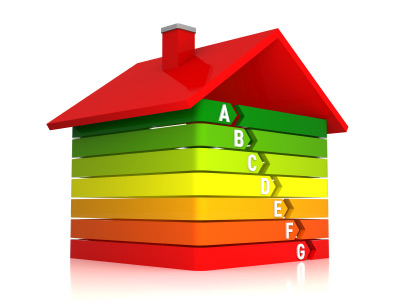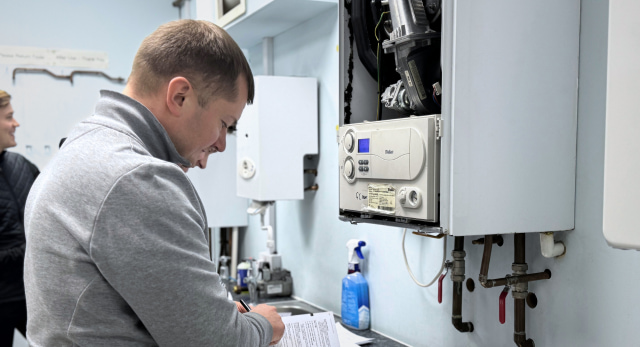Are the government finally doing more to beat fuel poverty?
A worrying 2.3 million households in England remain in fuel poverty, a problem which affects many working families as well as high risk groups like pensioners. It is claimed that 1.1 million working households officially meet the definition for fuel poverty with 10% of all households in England being described as “fuel poor”. The figure rises again to 19% among those living in private rented accommodation.
The Government’s target is to move all fuel-poor homes in England to a “Band C” energy efficiency rating by 2030 at an estimated cost of £1.2 Billion a year. In reality the government is spending less than half of what is required (£490 million a year).
The government is being urged to do more to beat this growing fuel poverty issue, before it spirals out of control.
 As a potential step in the right direction, new energy efficiency regulations could help a million tenants currently paying over £1000 (average) on their energy bills. Landlords will be banned from renting out England’s draughtiest properties from 2018 in a bid to cut energy bills and carbon emissions.
England has some of the oldest and leakiest building stock in Europe. Campaigners hope that the new legislation will force landlords into action when it comes to maintaining their properties to better living standards and efficiency.
The regulations will force landlords to upgrade the energy efficiency of hundreds of thousands of homes currently rated F and G to a minimum of E by the 1st April 2018. If they fail to do this they will not be allowed to let the property until they improve the rating.
The regulations also mean that from April 2016, tenants living in F and G rated homes will be able to request improvements such as insulation. The landlord will then be legally bound to bring the home up to an E rating.
Although this is a big step in the right direction, The Warmer Homes report still highlights a funding gap of £700 million per year. Energy efficiency subsidies should be more focused on fuel-poor households. At present, only 33% of fuel poverty funding actually benefits the fuel poor and only 10% of winter fuel payment recipients are actually in fuel poverty.
As a potential step in the right direction, new energy efficiency regulations could help a million tenants currently paying over £1000 (average) on their energy bills. Landlords will be banned from renting out England’s draughtiest properties from 2018 in a bid to cut energy bills and carbon emissions.
England has some of the oldest and leakiest building stock in Europe. Campaigners hope that the new legislation will force landlords into action when it comes to maintaining their properties to better living standards and efficiency.
The regulations will force landlords to upgrade the energy efficiency of hundreds of thousands of homes currently rated F and G to a minimum of E by the 1st April 2018. If they fail to do this they will not be allowed to let the property until they improve the rating.
The regulations also mean that from April 2016, tenants living in F and G rated homes will be able to request improvements such as insulation. The landlord will then be legally bound to bring the home up to an E rating.
Although this is a big step in the right direction, The Warmer Homes report still highlights a funding gap of £700 million per year. Energy efficiency subsidies should be more focused on fuel-poor households. At present, only 33% of fuel poverty funding actually benefits the fuel poor and only 10% of winter fuel payment recipients are actually in fuel poverty.
 In a recent Guardian interview John Alker, acting CEO of the UK Green Building Council, said:
“This could be the single most significant piece of legislation to affect our existing building stock in a generation, affecting a huge swath of rented properties. Government deserves huge credit for sticking to its guns. Some will undoubtedly cry ‘red tape’, but good landlords and forward-thinking property companies have nothing to fear.”
Logic4training runs an excellent Energy efficiency training course for domestic heating installers. The Energy Efficiency for Domestic Heating training course will enable operatives to "self certificate" as required by the Building Regulations Part L.
In a recent Guardian interview John Alker, acting CEO of the UK Green Building Council, said:
“This could be the single most significant piece of legislation to affect our existing building stock in a generation, affecting a huge swath of rented properties. Government deserves huge credit for sticking to its guns. Some will undoubtedly cry ‘red tape’, but good landlords and forward-thinking property companies have nothing to fear.”
Logic4training runs an excellent Energy efficiency training course for domestic heating installers. The Energy Efficiency for Domestic Heating training course will enable operatives to "self certificate" as required by the Building Regulations Part L.
Back to Insights
 As a potential step in the right direction, new energy efficiency regulations could help a million tenants currently paying over £1000 (average) on their energy bills. Landlords will be banned from renting out England’s draughtiest properties from 2018 in a bid to cut energy bills and carbon emissions.
England has some of the oldest and leakiest building stock in Europe. Campaigners hope that the new legislation will force landlords into action when it comes to maintaining their properties to better living standards and efficiency.
The regulations will force landlords to upgrade the energy efficiency of hundreds of thousands of homes currently rated F and G to a minimum of E by the 1st April 2018. If they fail to do this they will not be allowed to let the property until they improve the rating.
The regulations also mean that from April 2016, tenants living in F and G rated homes will be able to request improvements such as insulation. The landlord will then be legally bound to bring the home up to an E rating.
Although this is a big step in the right direction, The Warmer Homes report still highlights a funding gap of £700 million per year. Energy efficiency subsidies should be more focused on fuel-poor households. At present, only 33% of fuel poverty funding actually benefits the fuel poor and only 10% of winter fuel payment recipients are actually in fuel poverty.
As a potential step in the right direction, new energy efficiency regulations could help a million tenants currently paying over £1000 (average) on their energy bills. Landlords will be banned from renting out England’s draughtiest properties from 2018 in a bid to cut energy bills and carbon emissions.
England has some of the oldest and leakiest building stock in Europe. Campaigners hope that the new legislation will force landlords into action when it comes to maintaining their properties to better living standards and efficiency.
The regulations will force landlords to upgrade the energy efficiency of hundreds of thousands of homes currently rated F and G to a minimum of E by the 1st April 2018. If they fail to do this they will not be allowed to let the property until they improve the rating.
The regulations also mean that from April 2016, tenants living in F and G rated homes will be able to request improvements such as insulation. The landlord will then be legally bound to bring the home up to an E rating.
Although this is a big step in the right direction, The Warmer Homes report still highlights a funding gap of £700 million per year. Energy efficiency subsidies should be more focused on fuel-poor households. At present, only 33% of fuel poverty funding actually benefits the fuel poor and only 10% of winter fuel payment recipients are actually in fuel poverty.
 In a recent Guardian interview John Alker, acting CEO of the UK Green Building Council, said:
“This could be the single most significant piece of legislation to affect our existing building stock in a generation, affecting a huge swath of rented properties. Government deserves huge credit for sticking to its guns. Some will undoubtedly cry ‘red tape’, but good landlords and forward-thinking property companies have nothing to fear.”
Logic4training runs an excellent Energy efficiency training course for domestic heating installers. The Energy Efficiency for Domestic Heating training course will enable operatives to "self certificate" as required by the Building Regulations Part L.
In a recent Guardian interview John Alker, acting CEO of the UK Green Building Council, said:
“This could be the single most significant piece of legislation to affect our existing building stock in a generation, affecting a huge swath of rented properties. Government deserves huge credit for sticking to its guns. Some will undoubtedly cry ‘red tape’, but good landlords and forward-thinking property companies have nothing to fear.”
Logic4training runs an excellent Energy efficiency training course for domestic heating installers. The Energy Efficiency for Domestic Heating training course will enable operatives to "self certificate" as required by the Building Regulations Part L.









